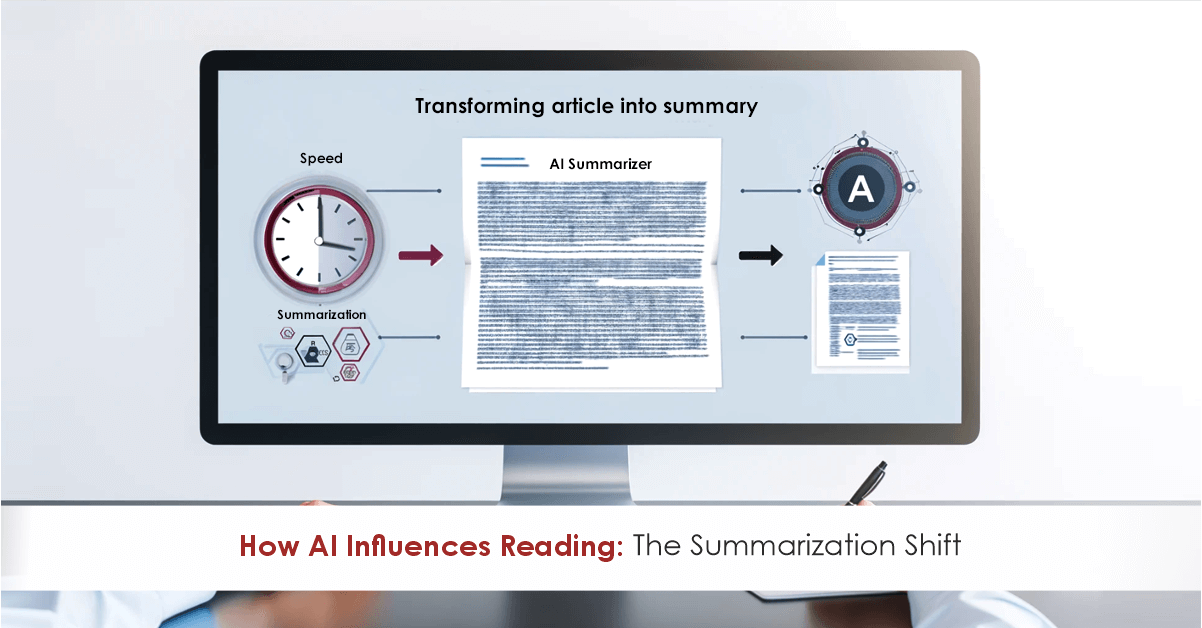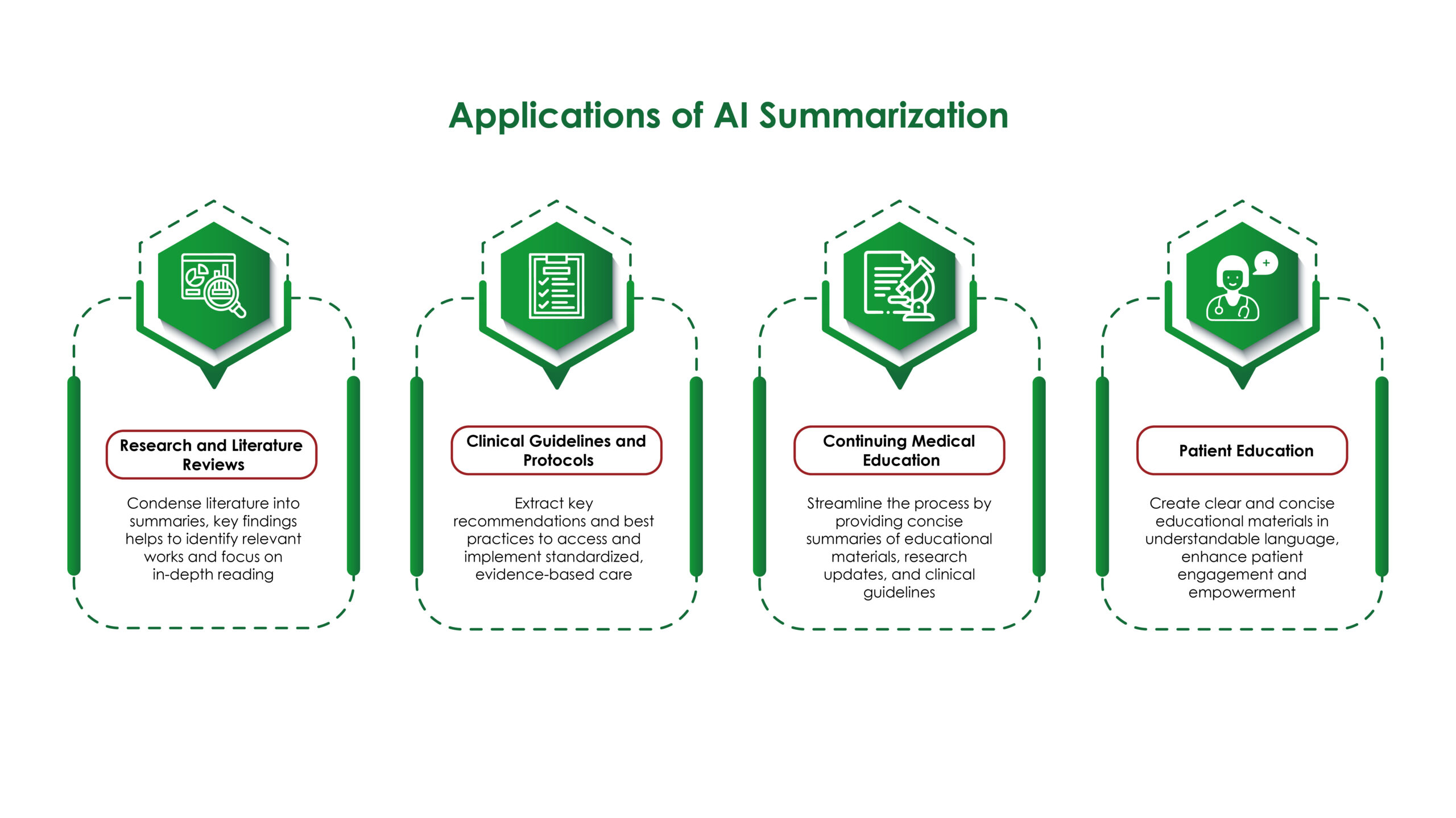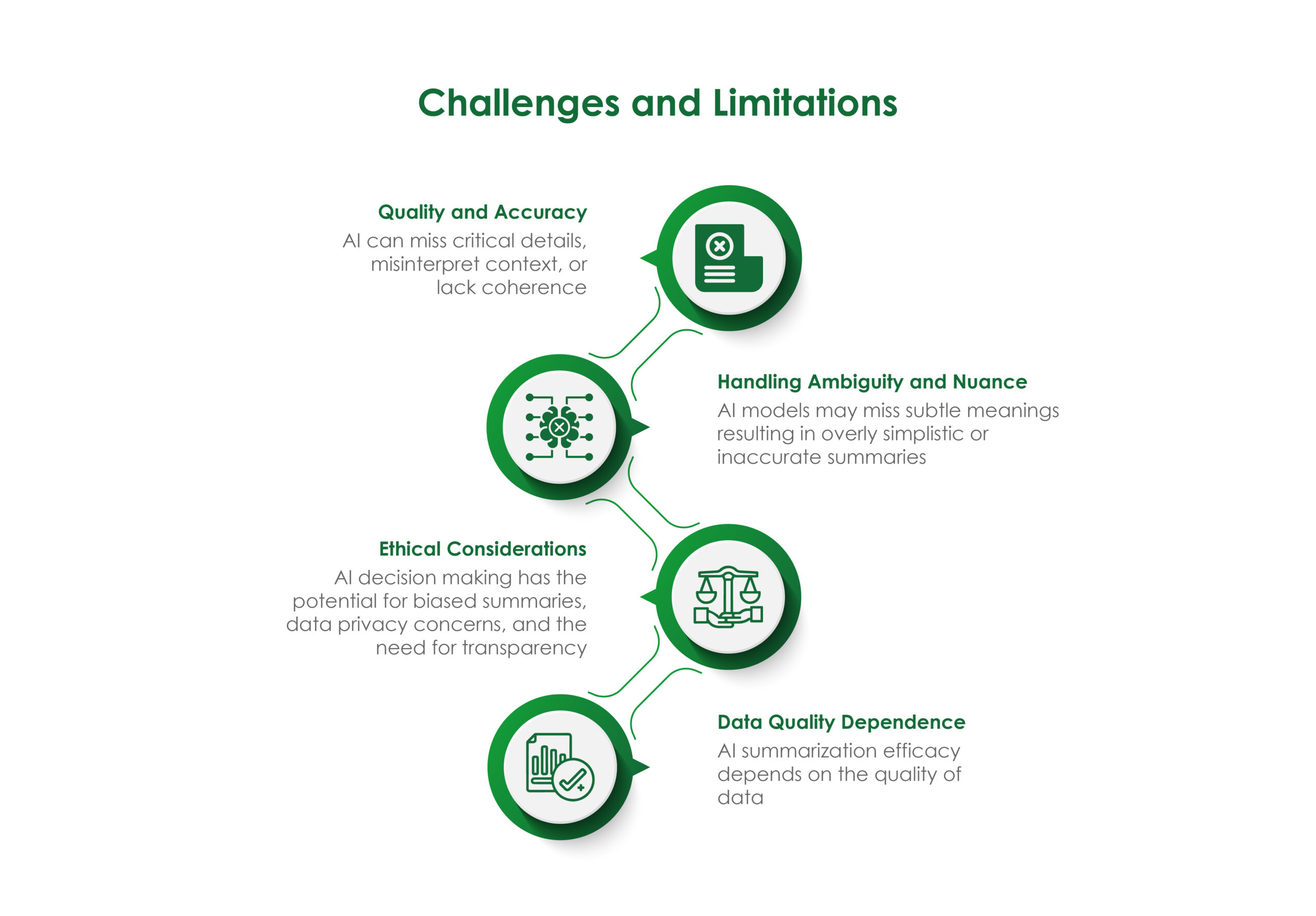
In healthcare, staying up-to-date with the latest research, guidelines, and clinical studies is crucial for medical professionals. However, the sheer volume of published literature can be overwhelming. This is where AI-assisted summarization steps in, offering a solution that can revolutionize medical writing and information consumption. By distilling vast amounts of text into concise, meaningful summaries, AI tools enhance healthcare providers’ productivity, decision-making, and knowledge acquisition.
The medical field generates an enormous amount of data daily. The influx of information is relentless, from research papers and clinical trial results to guidelines and case reports. For medical professionals, keeping abreast of these developments is essential but challenging. The traditional approach to summarizing and reviewing literature is time-consuming and not scalable, given the current pace of publication.
Efficient summarization tools can help mitigate this issue by extracting key points and presenting them in a digestible format. This also ensures that healthcare providers can access and utilize the most relevant and up-to-date information in their practice.
Summarization has traditionally been a manual process, reliant on individuals’ expertise to identify and condense the main ideas of a text. While effective, this method is labour-intensive and prone to human error. The advent of AI has introduced significant advancements in this field, leveraging natural language processing (NLP) and machine learning to automate and enhance the summarization process.
AI summarization techniques can be broadly categorized into
Both methods have their place in medical writing. Extractive summarization is helpful for quickly highlighting important points, while abstractive summarization can provide more comprehensive and understandable summaries of complex medical literature.
The development of sophisticated NLP models has been transformative for AI summarization. Early models, such as Latent Semantic Analysis (LSA) and TextRank, laid the groundwork for extractive summarization. However, the real breakthrough came with the introduction of neural networks and deep learning.
Models like BERT (Bidirectional Encoder Representations from Transformers) and GPT (Generative Pre-trained Transformer) have significantly improved extractive and abstractive summarization quality. These models are pre-trained on vast datasets and can understand text context, semantics, and nuances, enabling them to generate more accurate and coherent summaries.
Read More:- How Can You Benefit from Medical Communication services?
The applications of AI-assisted summarization in medical writing are vast and varied, impacting numerous aspects of healthcare and research.

While AI-assisted summarization offers numerous benefits, it is not without challenges and limitations. Understanding these limitations is crucial for setting realistic expectations and technology.

The ethical correctness of AI summarization is a subject of ongoing debate. While some argue that AI summarization tools can aid in paraphrasing content effectively and efficiently, others raise concerns about potential issues related to originality and attribution of ideas. It’s essential to consider both the benefits and ethical implications of using AI summarization tools and to ensure that their use aligns with principles of academic and professional integrity.
In this respect, when considering the use of AI-summarized content in manuscripts or publications, it is crucial to address specific ethical and practical concerns. Transparency about the use of AI summarization tools is essential, along with proper attribution to the original sources of the summarized content. Additionally, verifying the accuracy and completeness of AI-generated summaries is necessary to avoid the dissemination of errors or oversimplified information in published work. By adhering to these principles, the use of AI summarization tools can be ethically integrated into academic and professional writing.
The future of AI-assisted summarization in medical writing is promising, with ongoing advancements in NLP and machine learning poised to address current limitations and unlock new possibilities.
AI summarization will continue expanding into new healthcare domains, from patient records and clinical trial data to telemedicine and healthcare administration. As the technology matures, its applications will become more diverse, offering benefits across various medical fields.
AI-assisted literary exploration through efficient summarization is ushering in a new era for medical writing. By distilling vast amounts of text into concise, meaningful summaries, AI tools enhance healthcare providers’ productivity, decision-making, and knowledge acquisition. While challenges remain, ongoing advancements in NLP and machine learning promise a future where AI summarization becomes an indispensable tool for navigating the complexities of medical literature.
As we embrace this technological evolution, that we remain mindful of ethical considerations and strive for continuous improvement. By doing so, we can harness the full potential of AI summarization, transforming the way we interact with medical information and ultimately improving patient care.